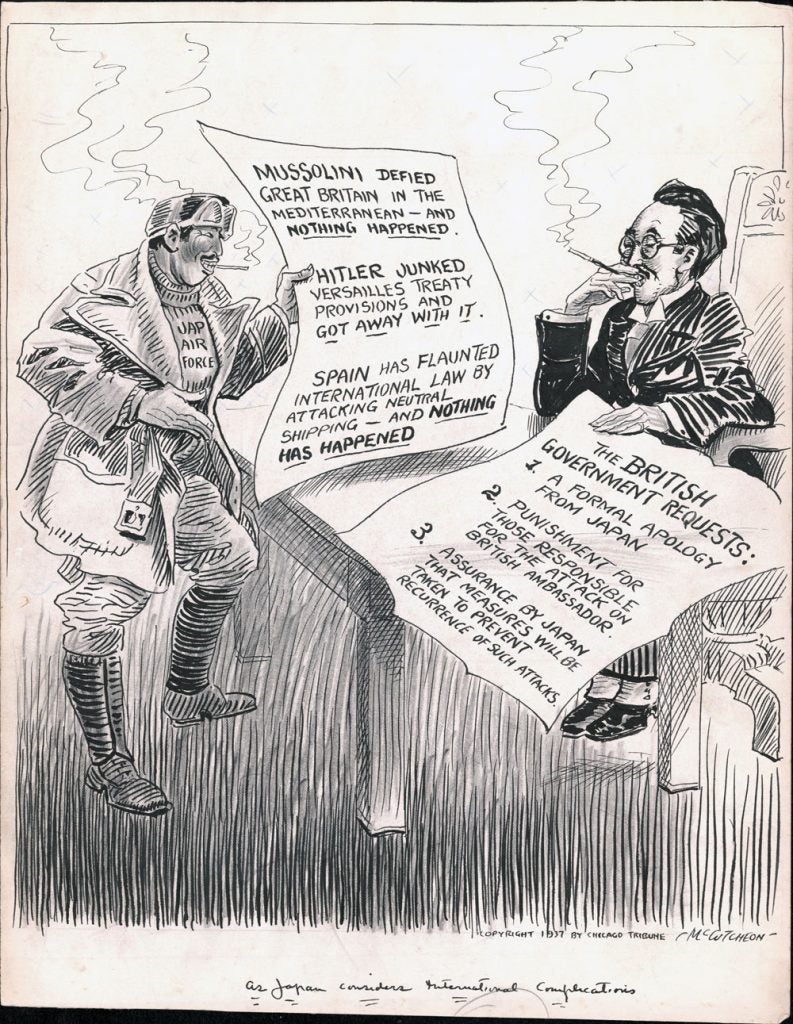
“As Japan Considers International Complications” (August 30, 1937)
by John Tinney McCutcheon (1870-1949)
14 x 18 in., ink on drawing board
Coppola Collection
On the Purdue campus, where he was a student, McCutcheon (class of 1889) is memorialized in a coeducational dormitory, John T. McCutcheon Hall. The lobby displays an original of one of his drawings, a nearly life-size drawing of a young man.
After college, McCutcheon moved to Chicago, Illinois, where he worked at the Chicago Morning News (later: Chicago Record) and then at the Chicago Tribune from 1903 until his retirement in 1946. McCutcheon received the Pulitzer Prize for Cartoons in 1932.
On August 26, 1937, the British ambassador to China (Hughe Knatchbull-Hugessen) was wounded when a Japanese plane strafed and attacked his limousine. First hospitalised in Shanghai and then invalided home to Britain, he narrowly escaped paralysis. On August 29, Britain sent a sharp note of protest to the Japanese government demanding a formal apology for the wounding of their ambassador.
The lack of any significant reply from Japan is represented here as the Japanese learning from the past few years in Europe, where Hitler and Mussolini defied the terms of many terms of prior treaties and civil agreements.
Without creating an army of thugs as your enforcers, laws and agreements are social contracts that provide deterrence as much as they provide for consequences. The moment you think you can walk out into the middle of a crowd and commit a crime with no consequence, civil systems begin to break down.

